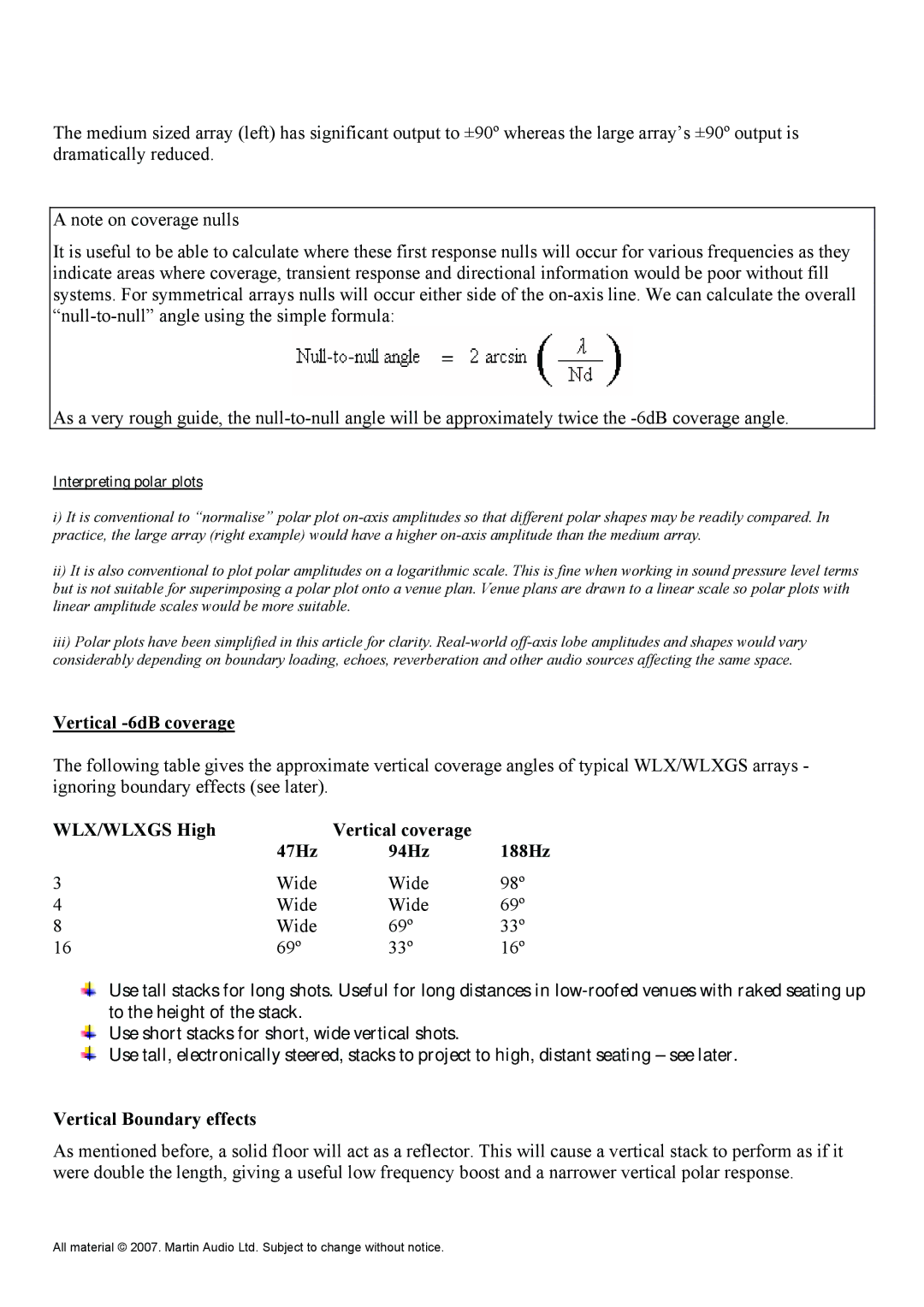WLX, WLXGS specifications
The Martin Audio WLXGS and WLX line array systems represent a remarkable advancement in professional audio technology, providing powerful and precise sound reinforcement for various applications, from concerts to corporate events. These systems are part of Martin Audio's commitment to delivering high-performance sound solutions that are both reliable and easy to use.At the heart of the WLXGS and WLX systems is their innovative design, which integrates advanced acoustic engineering with cutting-edge materials. The WLXGS, as a ground stack subwoofer, features two 18-inch drivers, which are optimized for deep bass response and efficiency. This design ensures that the low-frequency output is not only impactful but also well-controlled across a wide spectrum of environments. The WLX model, on the other hand, is designed for array applications, offering extreme versatility and scalable configurations suited for varying audience sizes.
One of the standout features of both the WLXGS and WLX systems is their ability to deliver exceptional sound quality. With a frequency response that extends from deep bass up through the midrange and treble frequencies, the systems maintain clarity and detail no matter the sound pressure level. This is crucial for live sound applications where vocal intelligibility and instrument clarity are essential.
The technology used in these speakers is also noteworthy. Martin Audio has employed its proprietary Optimized Digital Signal Processing (DSP) technology, which allows for precise tuning and control of sound characteristics. This technology helps mitigate issues such as interference and feedback, ensuring that the sound remains consistent and professional throughout an event.
Additionally, the WLXGS and WLX systems are designed for ease of deployment. The lightweight construction, combined with integrated rigging and stacking features, allows for quick setup and teardown, making them ideal for touring as well as fixed installations. The systems include integrated handles and optional accessories that facilitate transport and arrangement, making them user-friendly for audio engineers and technicians.
In conclusion, the Martin Audio WLXGS and WLX systems bring together powerful performance, innovative technologies, and practical design. Their combination of deep low-frequency output, clarity, and ease of use makes them a top choice for professionals in the audio industry, ensuring that audiences experience music and sound as intended by the artists and producers. Whether for large-scale events or intimate gatherings, the WLXGS and WLX deliver reliable performance that meets the high standards of modern sound reinforcement.

